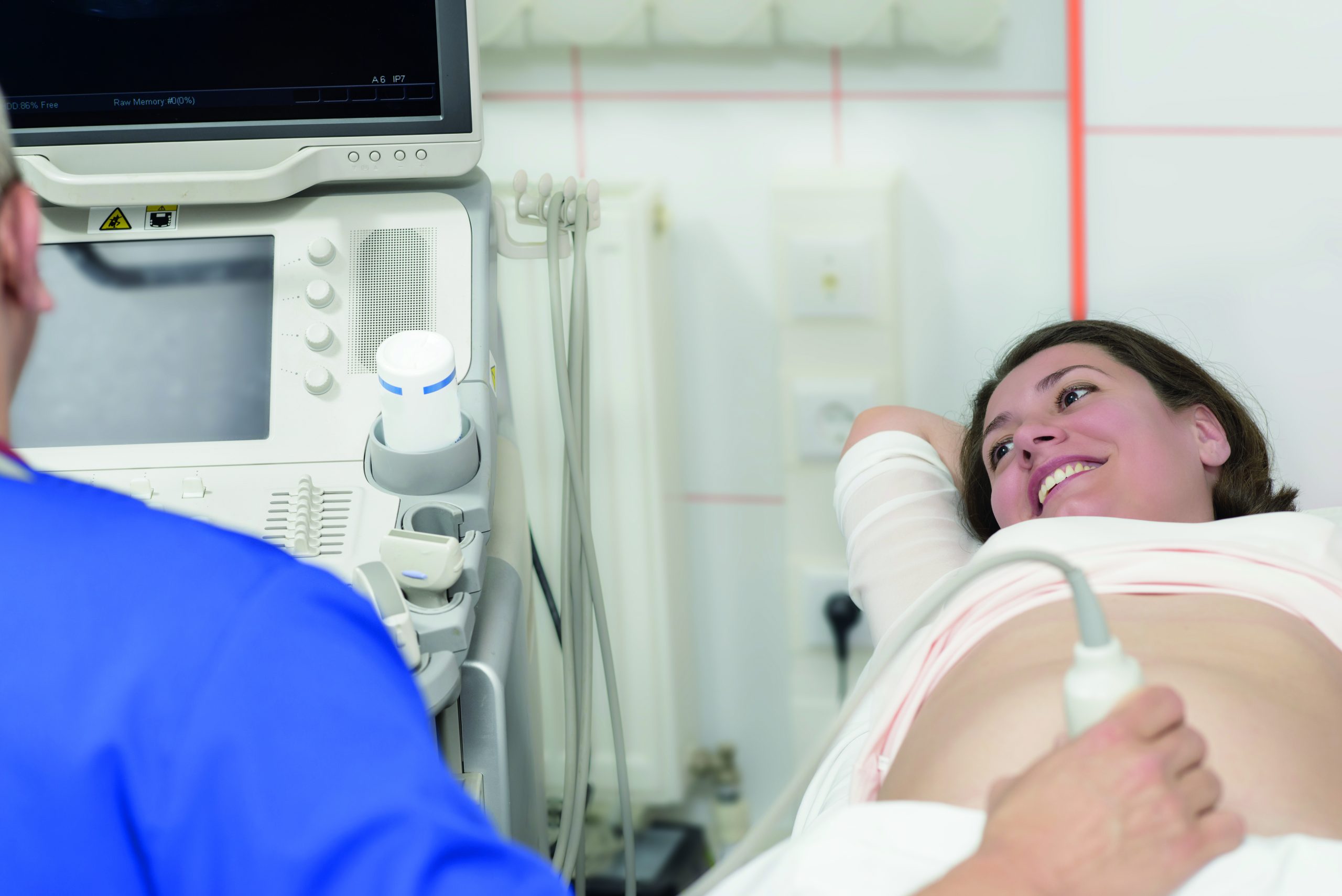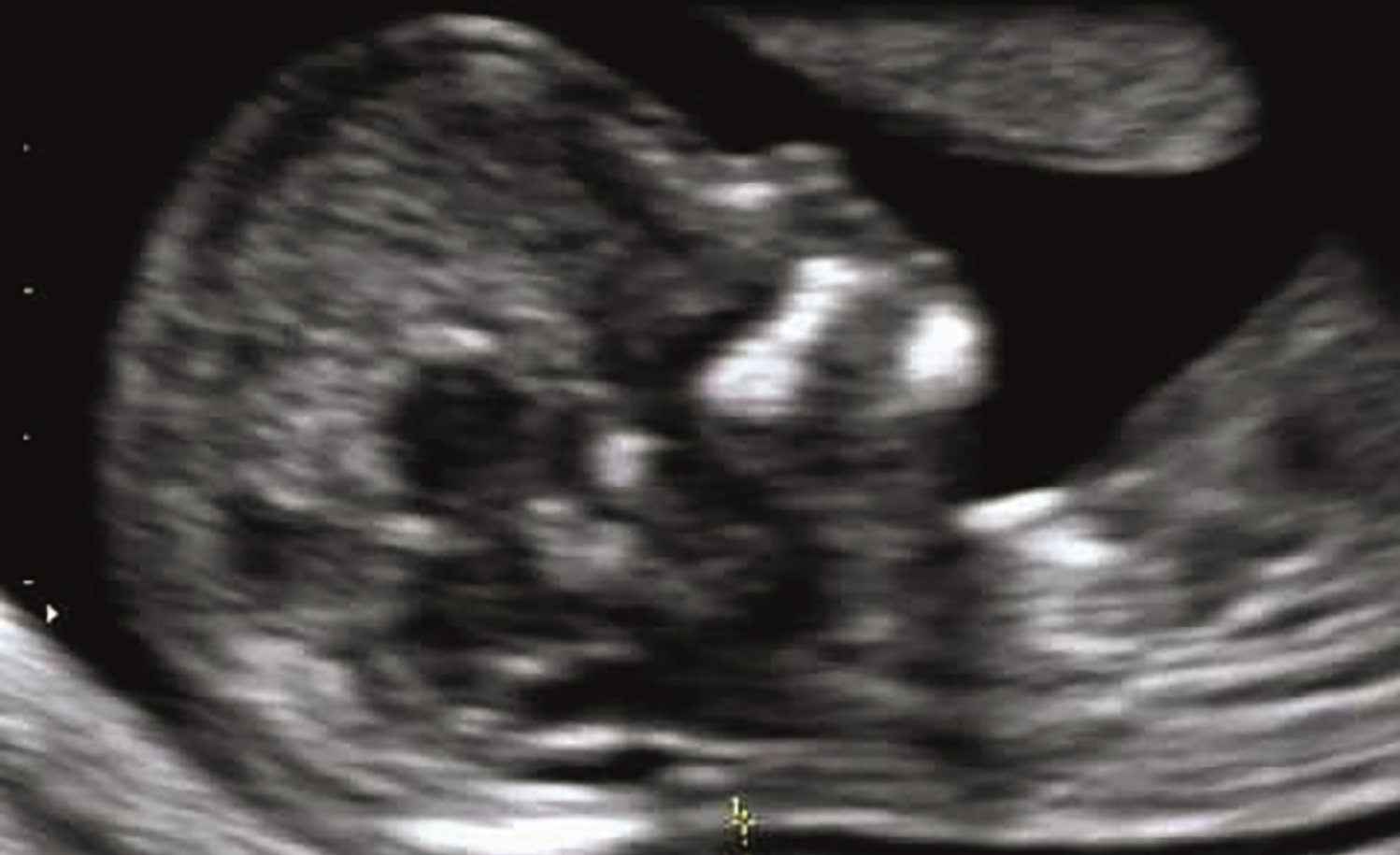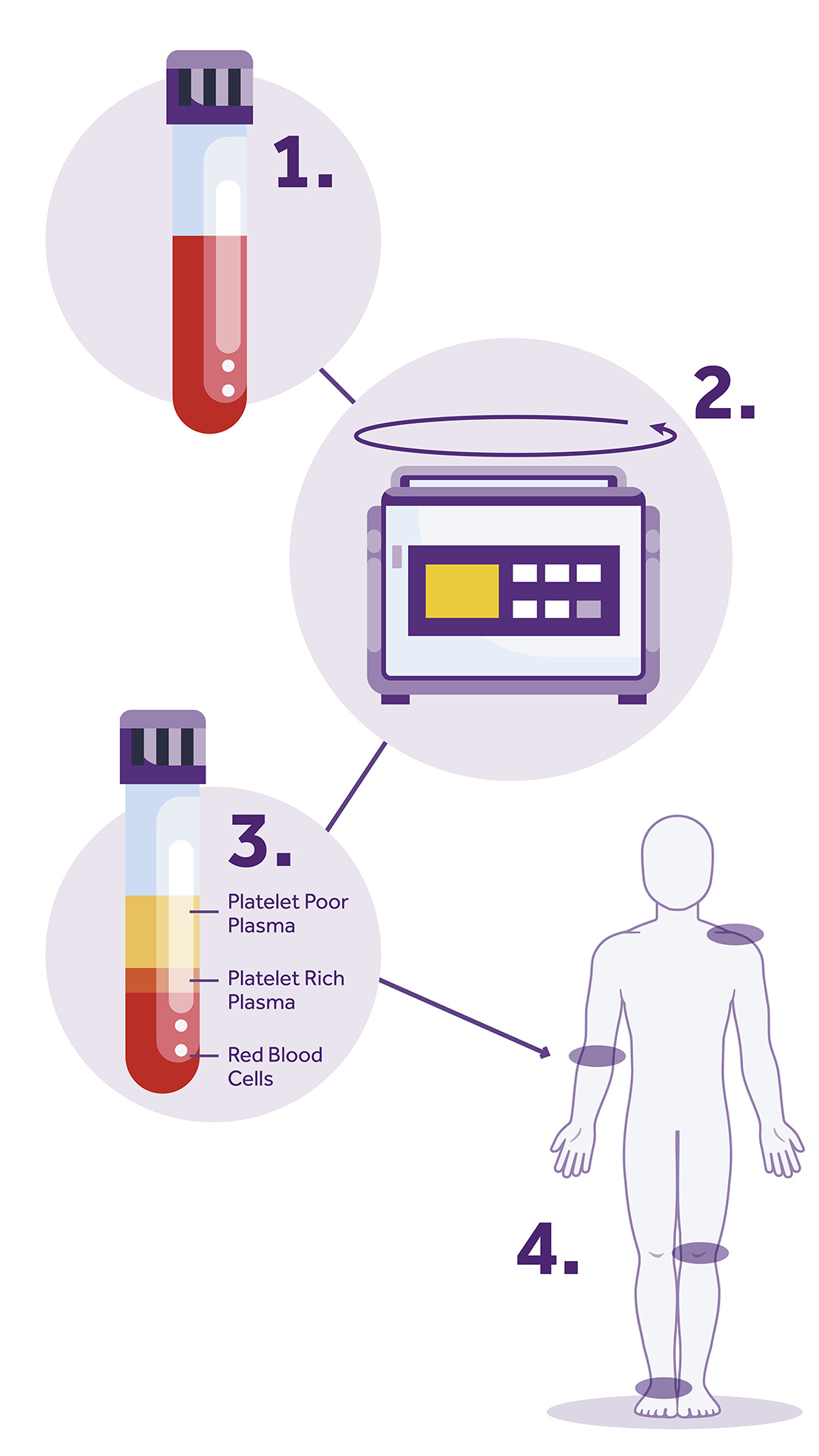Obstetric scanning plays an important role in first trimester screening. First trimester screening checks that a baby is developing as expected, determines the number of fetuses and estimates gestational time.

Obstetric ultrasound and Non-Invasive Perinatal Testing (NIPT)
Cell-free fetal DNA (cffDNA) is fetal DNA that circulates through the maternal blood. cffDNA testing is non-invasive and is used as a prenatal diagnosis tool for older pregnant women.
While cffDNA testing is valuable in detecting typical aneuploidy, first trimester fetal ultrasound is better at detecting non-genetic structural abnormalities including spina bifida and anencephaly.
The International Society of Ultrasound in Obstetrics and Gynaecology (ISUOG) guidelines state that all women should be offered a first-trimester ultrasound scan, regardless of their intention to undergo cffDNA testing. cffDNA testing should not replace first-trimester ultrasound.
Did you know:
- Atypical aneuploidy can’t always be detected by NIPT therefore the nuchal thickness on ultrasound can be a key indicator regardless of a low risk NIPT result;
- The incidence of spina bifida detected in the second trimester during routine ultrasound has increased since the advent of the NIPT. This points to the fact that more mothers are missing out on early detection of fetal central nervous system anomalies;
- Routine first trimester ultrasound screening performed from 12 weeks and 5 days to 14 weeks is the best time to assess for the early signs of spina bifida.
In the first trimester highly trained sonographers can perform an age appropriate morphology scan and detect the absence of a nasal bone, bladder absence or exstrophy, oesophageal atresia, midgut herniation, limb anomalies, cystic hygroma, facial clefts, situs inversus, encephalocele, diaphragmatic hernia, and a range of placental anomalies.
Qscan Radiology Clinics provides a wide variety of specialised obstetric services, including both Nuchal Translucency Screening (combined with first trimester biochemistry) and First-Trimester Fetal Morphology studies.

Our highly qualified nuchal-accredited obstetric sonographers can provide you peace of mind by performing early screening for structural anomalies.
Ultrasound services are offered at every Qscan Radiology Clinic. Click here to find a clinic near you.





